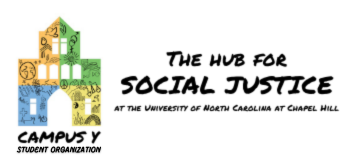Campus Y celebrates 10 years of Bonner Leaders
February 23, 2022 • Camille DiBenedetto • No Comments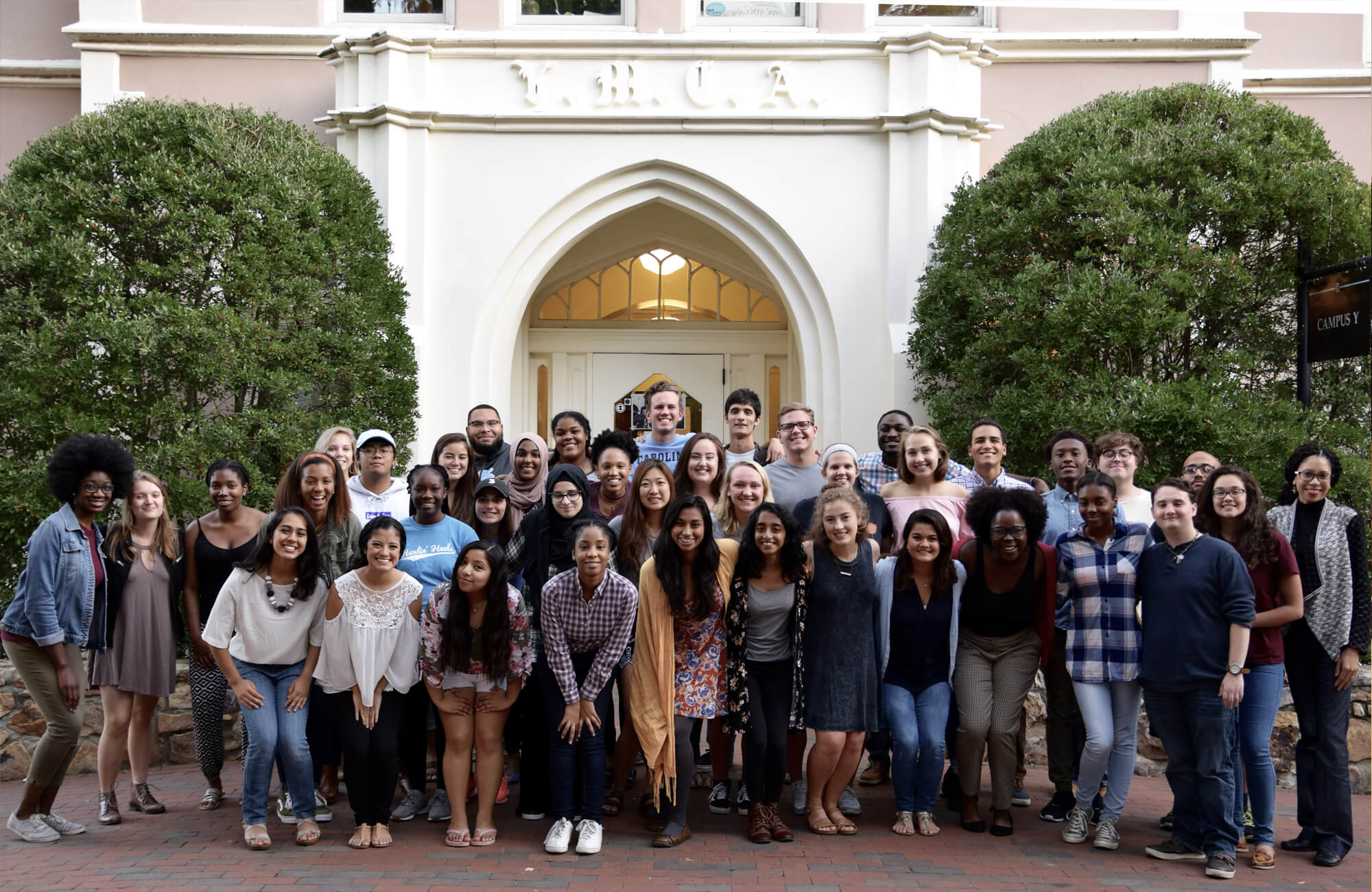
This year, the Campus Y is celebrating ten years of the Bonner Leaders Program at UNC- Chapel Hill. The Bonner Leaders Program is a four-year service-based scholarship program that allows students to earn their work study funds while serving in the community. In other words, the Bonner program provides an opportunity for students who need to work in order to finance their education the same opportunities for social change that other students at the Campus Y who may not have to work during their education are provided.
In the national Bonner model, students rotate through working with different community organizations during their first year in the program. However, at Carolina, the Bonner program is structured a little bit differently.
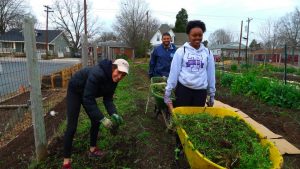
“After being with their community partners for a few weeks the first group of Bonners said, ‘We don’t want to rotate. We really like where we are.’ And so, we developed the first Bonner Leaders Program where students would make a four year commitment to working with a community partner.” says Lucy Lewis, the former Assistant Director of the Campus Y and Director of the Bonner Leaders program at UNC from its inception in 2011 until 2016.
Having worked with nonprofits before coming to the Campus Y, Lucy knew how important having long-term volunteers was to her community partners. So, she developed a model where each year the program would add another cohort so that, eventually, the community partners had a freshman, sophomore, junior, and senior working at the site, with the older students mentoring and teaching the newer ones. In addition to helping community partners in a more sustainable way, Carolina’s model provided an opportunity for Bonner students to get an in-depth experience and understanding of their community partners.

“It was really important to me that students understand the issues that underlined the work they were doing with community partners,” Lucy says. “For example, in Orange County, one out of four young people is at risk of hunger. I didn’t want people just to be working with food pantries, but to understand why do we have hunger in this country…not just the service work that folks were doing, but the political ramifications of that work. So instead of having the charity approach, students were taking the social change approach.”
When the Bonner Leaders Program started in 2011, the Campus Y was working with 4 or 5 community partners. Now, students have over 13 different community partners to choose from. Some of the community partners like the Communiversity Youth Program are new. Others like the Marian Cheek Jackson Center have been with Bonner since the beginning.
Zack Kaplan (’15) was one of the first students to go through the Bonner Leaders program at UNC. After learning about the program at an admitted students day in high school, Zack knew that he wanted to apply for the program. In fact, he had his interview for the Bonner program before he even attended his first class during his freshman year at UNC.
“Before I even went to class, I was on my way to becoming a Bonner Leader. And so, it really was part of my Carolina experience right from the start.” Zack says.
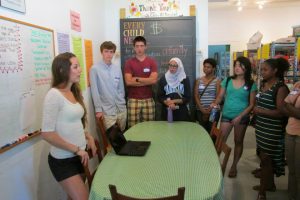
During his first year at Carolina, Zack worked at the RENA Community Center working with and for the Rogers Road community, a historically Black neighborhood in Chapel Hill. During his first year at Carolina, his service at RENA was the only time he left campus and as Zack calls it, “the bubble” of the university.
While working at RENA, Zack spent most of his time tutoring elementary school students after school.
“It was my first introduction to any real education work which I knew that I was interested in, but didn’t really have of a clear vision for before I began with the Bonner program.” Zack says. “It was also my first introduction into racial equity work… And so, both of those things impacted not only my time at Carolina, but the trajectory of my career after that. After I graduated, I became a fifth grade teacher in Durham and I don’t think that I would’ve been nearly as likely to move towards that path or that trajectory if I weren’t for my first year with Bonner.”
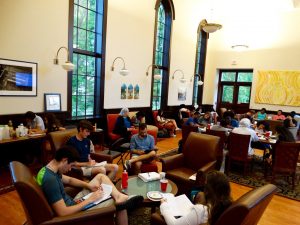
In 2011, the RENA Community Center was running out of a house in the neighborhood and was shut down due to fire code violations in the summer of 2012. It was no longer an option for Zack to work at RENA as he had planned. Still, Zack didn’t stop his work in education and racial equity when the Rogers Road community center was shut down.
Zack continued the tutoring that he did at RENA at the church down the street from the shutdown community center and began working for the Marian Cheek Jackson Center during his sophomore year at UNC which is an organization committed to preserving the future of historically Black neighborhoods in Chapel Hill and Carrboro. During his time at the center, Zack was involved in a lot of community organizing work, fostering relationships between the long-time community members and Carolina students who typically only lived there for a year or two before moving out.
During his senior year, Zack took on more of an internal role at the Bonner Leaders program working as a senior intern. Zack still went out to the Rogers Road Community and the Marian Cheek Jackson Center, but most of the time he was working on internal programming such as creating weekly meetings and critical issue seminars for the Bonner students.
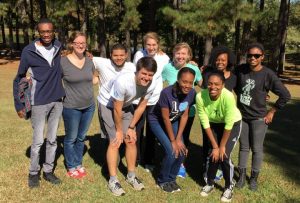
Having grown up in a predominantly white town in Pennsylvania, Zack’s time in the Bonner program made him completely rethink his approach to community service work. In high school, Zack participated in community service projects through Boy Scouts and National Honors Society, but their volunteer projects were always surface-level and short-lived.
“You would show up at a place and you would clean up or you would sing carols with old folks or you would renovate a playground, things like that. But it was just a couple hours over the course of an afternoon and then you were out of there. That sort of work…makes you feel good about yourself in the moment, but I never took a step back to realize whether or not that’s really making much of a difference.” Zack says.
“And if it is making much of a difference, who is it making a difference for? And how long will that difference last…Now, you know, those aren’t really questions that you ever fully answer, but they’re really, really important questions to ask, especially as a white person going into mostly communities of color, which is where I was working and and where I’ve worked ever since I graduated.”
“I think if I had to pick one thing that the Bonner program taught me, it’s the value of that sustained commitment, that sustained dedication, not just over days or over weeks or over months, but over years. To get to know a community in order to not work for them, but to work with them and to accomplish goals together that the community members want to be true about their lives and about their community, not what you might want to be true about their lives and their community from an outsider perspective.” Zack says.
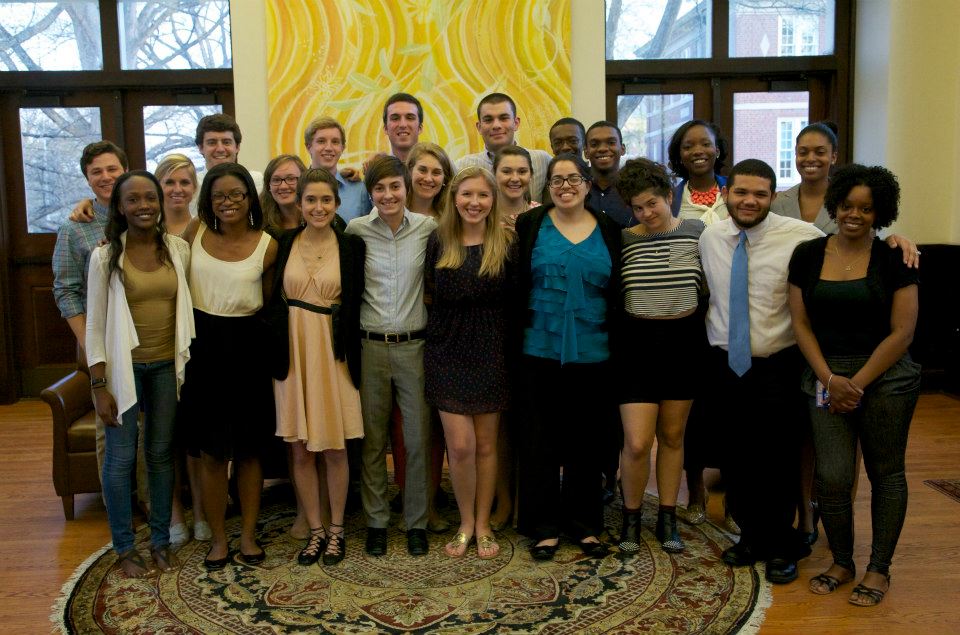
Leaders petitioned Chapel Hill and Orange County to fulfill their promise of creating a new community center for the next three years during Zack’s time at Carolina and RENA finally opened up a new building before Zack graduated in Spring 2015. Zack’s time in the Bonner Leaders program at Carolina had finally come full circle. Still, his work didn’t stop there.
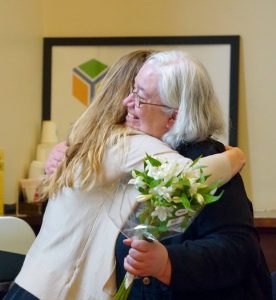
After graduating, Zack taught in Durham for a few years and eventually decided to focus his interests in education and racial equity work on policy and went to law school in 2018. After graduating in 2021, Zack is working for a justice on the North Carolina Supreme Court in Raleigh and hoping to go into education and civil rights law once he’s finished his clerkship at the end of this year. Zack doesn’t know exactly where he’s headed next, but he knows that he’s going to stay in the Triangle and continue focusing on the issues that he’s been passionate about since his time in the Bonner program.
“Young people are so important in social movements. That’s been true historically in our country and globally that young people have the energy and the openness to really be critical to movements for social change.” Lucy says.
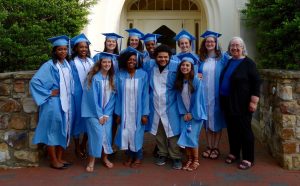
“I think too often that higher education is seen as a degree factory. It’s seen as something you have to do in order to move ahead with your career. And that they’re just too few spaces for students to really learn their own agency, their own power to do critical thinking, and to think about education as a way of understanding things in order to make a more just and equitable world.” Lucy says.
To learn more about the Bonner Program at UNC and how to apply for the 2022-2023 school year, visit our website here.
